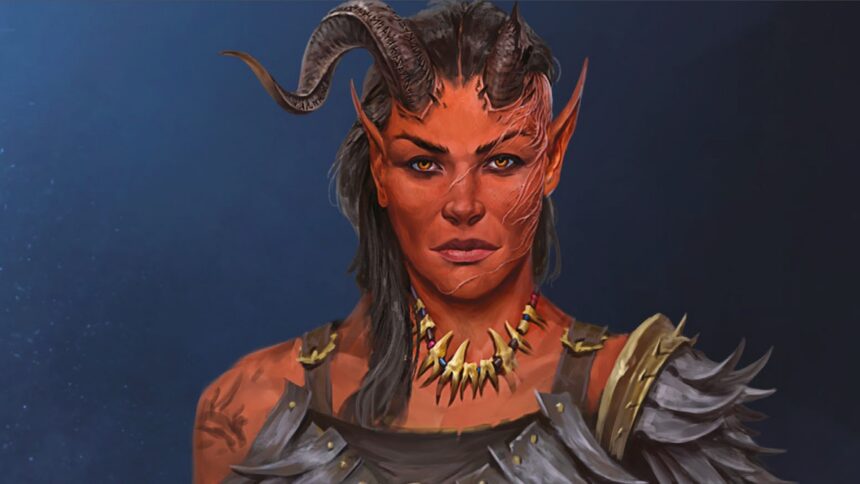In a latest interview with Edge journal (noticed through GamesRadar), actor Samantha Béart—most well-known for his or her efficiency as Karlach in Baldur’s Gate 3—gave their evaluation of the push for AI-generated performances and different belongings in video games, and the motivation behind it.
“Basically, [CEOs pushing AI] simply wish to lower your expenses,” stated Béart. “In the long run, it will destroy their popularity, their firm, every part.” Unsurprisingly, their opinion of AI in video games hasn’t improved since they criticized the tech alongside fellow BG3 performers on the 2024 BAFTAs.
Béart was additionally uncertain that performers and artists within the trade would settle for having these instruments foisted on them. “It is simply not going to occur,” argued Béart. “Why would you do it? You’ve got simply signed your means out of any form of job or profession.
“We’ve an trade of extremely creative individuals who’ve had a calling to do that stuff, and then you definitely’ve received these folks with cash, who do not play video games, who see it as a straightforward approach to make a return on funding.”
“These two issues are oil and water,” they stated. “It’s extremely troublesome to barter with folks on reverse sides of the spectrum.”
Béart additionally contrasted the best way gaming efficiency seize is dealt with with extra conventional performing roles: “You do not present up on set and understand as you are filming that it is Marvel. You signal an NDA after which they inform you. Whereas in video video games, culturally it appears to be they provide you an NDA, after which they nonetheless do not inform you what is going on on, which simply does not assist the efficiency.”
“The dream of the tech trade is to unload your organization at an overinflated worth and retire,” the actor stated in summation. “And I really feel that is being finished with sport studios proper now.”
Béart’s evaluation is being born out in actual time: At the same time as extra money is poured into AI growth and datacenters, generative AI in video games stays extremely unpopular, a unclean phrase you must justify to avid gamers in any potential gross sales pitch. When you do not disclose forward of time, issues get significantly messy.
One latest instance contains the disastrous AI-generated trailer for Ark DLC Aquatica, which is being made by a brand new studio. Ark’s authentic builders felt the necessity to distance themselves from the state of affairs after a large (and completely predictable) backlash.
There’s additionally the entire AI Aloy fiasco, the place a leaked Sony demo of the Horizon sequence protagonist as an AI chatbot responding to voice instructions led to a wave of criticism and derision, in addition to a response from Aloy’s precise voice actor, Ashly Burch.
Alongside the moral considerations behind sourcing and the potential automated alternative of artistic jobs, the standard of AI-generated textual content, imagery, video, and voice overs has noticeably plateaued up to now 12 months, with AI fashions by no means capable of divest themselves of the disturbing, uncanny, telltale indicators of AI era.
That is to say nothing of their predilection for confidently presenting false data as truth, or “hallucinating” to borrow the trade time period. A latest examine estimated that AI engines like google current false or deceptive data 60% of the time.
SAG-AFTRA remains to be embroiled in a serious strike towards publishers for a brand new interactive media contract masking performances in videogames. The sticking level in negotiation is protections and clearly outlined rights for actors over their performances getting used to coach AI fashions.








